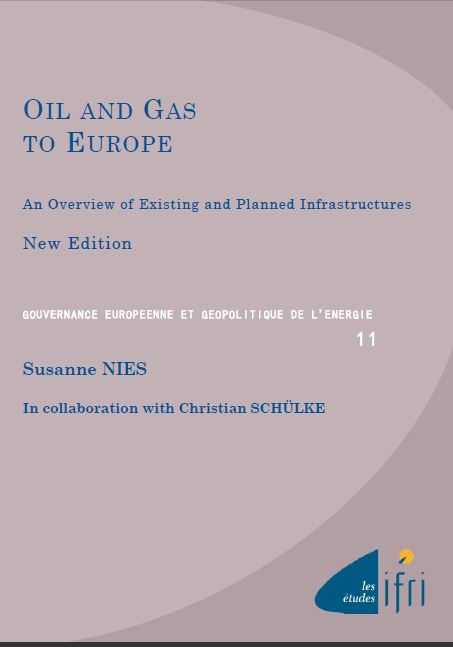Oil and Gas Delivery to Europe: An Overview of Existing and Planned Infrastructures. New Edition

The European Union’s hydrocarbon energy supply depends heavily on imports. While the European Commission has recommended diversifying and increasing domestic resources, notably with renewable resources which should grow to 20% by 2020, dependence on hydrocarbon imports will remain not only substantial, but will increase.
Particular attention must thus be paid to the question of transportation, and also to the countries of origin, investments in infrastructure, their protection, relations with transit countries, ‘competing consumers" (notably China and emerging countries, but also the United States), energy wastefulness in producing countries, and, finally, price. Security of supply depends on adequate and reliable infrastructure, and must always be thought of in the long term.
This entirely revised edition of the fourth study conducted by the European Governance and Geopolitics of Energy program at Ifri includes discussions about pipeline routes and potential outputs, their current use and financial requirements for transportation, ongoing projects and those planned for the future, their cost, their financing, and their probable operational start-up date. While all infrastructures are necessarily included (including Norway, the United Kingdom, and North Africa), particular attention is paid to transportation infrastructure that connects Europe with Russia and the former Soviet Union (Central Asia, Caspian Sea). It will be immediately clear that the issue of gas is dominant in current discussions.

Available in:
Regions and themes
ISBN / ISSN
Share
Download the full analysis
This page contains only a summary of our work. If you would like to have access to all the information from our research on the subject, you can download the full version in PDF format.
Oil and Gas Delivery to Europe: An Overview of Existing and Planned Infrastructures. New Edition
Related centers and programs
Discover our other research centers and programsFind out more
Discover all our analysesFinancial Tools for Boosting Resilience of CRM Value Chains and Strategic Stockpiling
Critical Raw Material (CRM) value chains are more vulnerable than ever and entire vital industries in Europe are now at risk if supplies are not secured through strategic and urgent actions, given mounting geopolitical confrontation, resource nationalism, growing demand and limited supply increase.
Placing the EU on a Warfare Footing: Energy and Raw Materials Priorities for 2026
The year 2025 has confirmed that one must prepare for much worse in the field of geopolitics and geoeconomics as the intensity and frequency of shocks increase and as the European Union (EU) has no more stable flanks now that crises with the United States (US) become so frequent and reveal a systemic rift. In the world, barriers to trade multiply and dependencies are weaponized.
Brazil One Year Away from the October 2026 General Elections
Brazil’s general elections will be held on October 4, 2026, to elect the president, vice-president, members of the National Congress, governors, deputy governors and state legislative assemblies. For the presidential and gubernatorial elections, a second round will be held on October 25 if no candidate obtains a majority of the votes in the first round.
COP30: An Inflection Point for Climate Action and Governance
The 30th Conference of the Parties (COP30), opening in Belém, Brazil, on November 10th 2025, convenes at a perilous moment.











